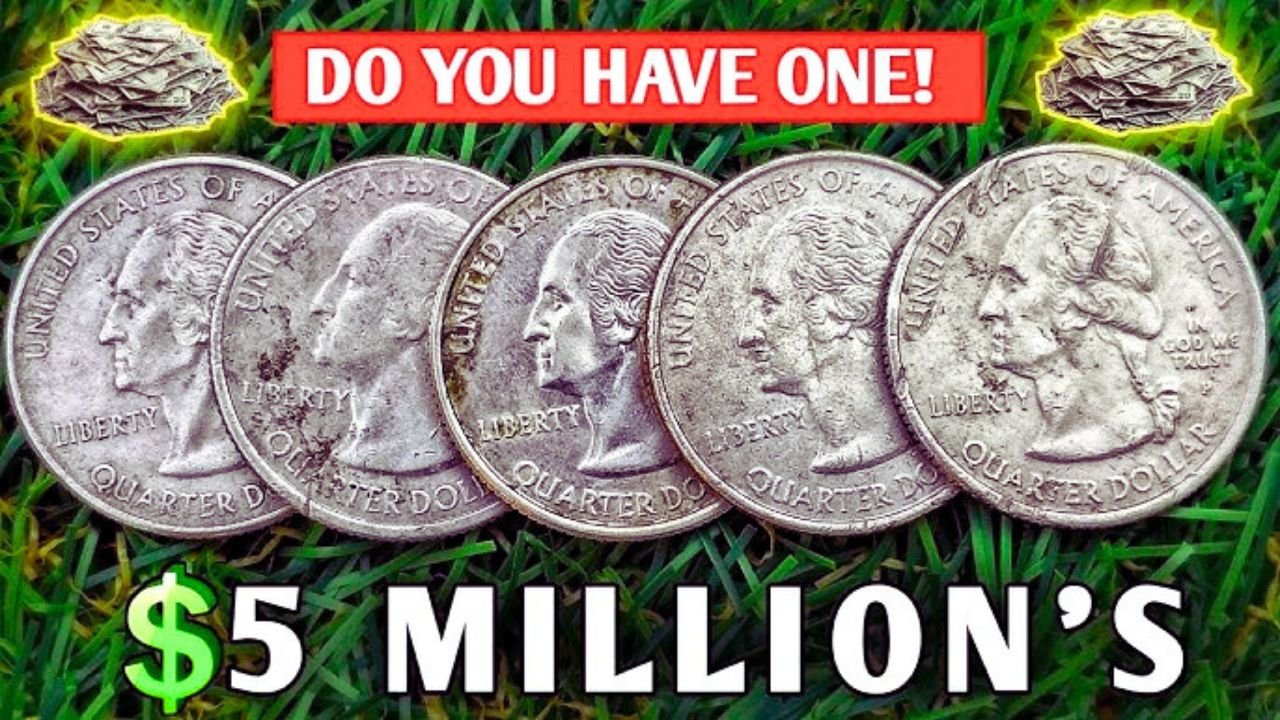Introduction to the State Quarters Craze
Back in 1999, the U.S. Mint kicked off the 50 State Quarters program, releasing five new quarters each year until 2008. Each one showed George Washington on the front and a unique design for every state on the back. Folks collected them like crazy, stuffing them into albums or just keeping them in jars. But what most people don’t know is that some of these everyday coins have turned into real treasures because of minting mistakes, low production numbers, or just being in top shape. We’re talking quarters that started as 25 cents but now sell for thousands at auctions. If you’ve got change from the early 2000s rattling around, it might be time to take a closer look.
Why Some Quarters Skyrocket in Value
The big money comes from errors during minting, like extra leaves on a cornstalk or coins struck on the wrong metal. Collectors go nuts for these because they’re one-of-a-kind. High grades from services like PCGS or NGC also boost the price – think MS67 or better, meaning the coin looks brand new. Regular quarters from this series are still just face value, but the rare ones? They’ve been climbing in worth over the years as more people hunt for them. Auction houses see bids flying high, and online marketplaces like eBay are full of listings. It’s not about the state itself, but those little flaws that make them stand out.
The Top 10 Valuable State Quarters
Here are ten standout examples that could be hiding in your pocket or old piggy bank. We’ve put together a simple table with their details, including the year, key features, and top sale prices from recent records. These aren’t your average coins – some have fetched over $10,000 each.
| Quarter Name | Year and Mint | Key Feature or Error | Top Value |
|---|---|---|---|
| Delaware Experimental | 1999-P | Struck on Sacagawea alloy | $4,888 |
| Maine Regular | 2003-D | High mint state grade | $2,300 |
| South Carolina Regular | 2000-P | Rare in MS69 condition | $8,000 |
| Wisconsin Extra Leaf Low | 2004-D | Extra maize husk error | $6,000 |
| Connecticut Sacagawea Planchet | 1999-P | Wrong metal, gold color | $10,500 |
| Delaware Regular | 1999-P | First in series, top grade | $4,888 |
| Pennsylvania Experimental | 1999-P | Experimental planchet | $2,520 |
| North Dakota Regular | 2006-D | MS68 grade rarity | $3,760 |
| Texas Grease Error | 2004-P | Strike-through grease flaw | $10,000 |
| New Mexico Regular | 2008-D | Scarce in high grades | $2,500 |
These values come from actual sales at places like Heritage Auctions, and prices can vary based on condition. For instance, that Connecticut quarter on the wrong planchet looks thicker and golden, making it easy to spot if you’re lucky enough to find one.
How to Spot and Sell Your Own Treasures
Checking your quarters is pretty straightforward. Flip them over and look for anything odd, like extra details in the design or off-center strikes. Use a magnifying glass under good light, and compare to online pictures from trusted sites. If you think you’ve got a winner, get it graded by a pro service – that can double or triple what it’s worth. Selling options include coin shows, dealers, or apps like those from the American Numismatic Association. Just remember, most state quarters aren’t valuable, so don’t quit your day job yet. But stories of folks finding these in loose change keep the excitement alive.
The Future of Coin Collecting
As time goes on, these quarters might get even pricier with fewer in circulation. Younger folks are jumping into collecting thanks to social media and apps that make it fun. Whether you’re in it for the history or the potential cash, the state quarters program left a cool legacy. So next time you’re paying for coffee, glance at that change – one of these gems could turn a quarter into a jackpot. Happy hunting, and who knows, you might just strike it rich with something that’s been in your wallet all along.
